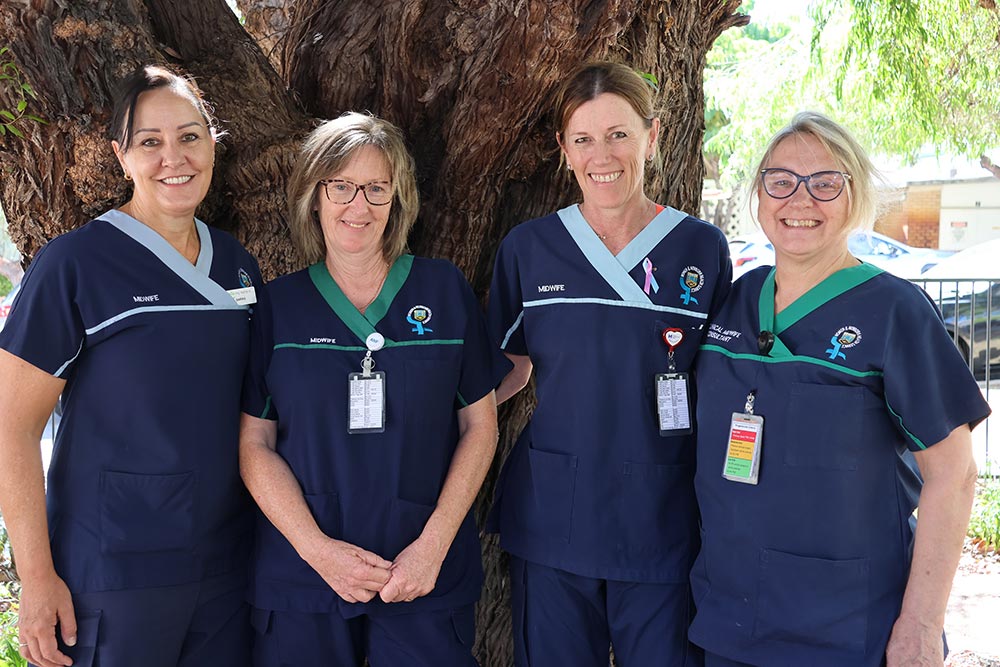Meet the specialised team preventing preterm birth for women of Western Australia

The Preterm Birth Prevention Clinic established at King Edward Memorial Hospital has played a foundational role in Australia’s world-leading national preterm birth prevention program.
The clinic is staffed by a specialised, multi-disciplinary team, including specialist obstetricians, midwives and a clinical psychologist – all working together to reduce the rate of preterm birth.
In 2024, the clinic saw more than 240 women identified as being at increased risk of early birth. Servicing remote locations such as Port Headland, Karratha, Esperance and Christmas Islands via telehealth, the team is able to engage pregnant women as early as 7 weeks gestation to begin their care plans.
Women in Western Australia are eligible for referral to the Preterm Birth Prevention Clinic if they have a history of preterm birth or are at increased risk due to their medical history. Referrals are received from GPs and other pregnancy care providers, usually in the first trimester.
Clinical Midwife Maternal Fetal Medicine, Jennifer Leverington explains that when a referral is received, the Preterm Birth Prevention Clinic midwives contact the woman to discuss their first appointment and provide support as early in the pregnancy as possible.
“Women find this personalised contact with the midwife incredibly valuable. We really feel like we’re making a difference and the shift in awareness of preterm birth and good pre-conception care among the community is evidence of this,” she said.
“For those with a prior history of preterm birth, we’re able to contact women proactively letting them know they are at increased risk should they have subsequent pregnancies and make care plans accordingly.”
Chair of the Australian Preterm Birth Prevention Alliance, Professor John Newnham said the Clinic continued to play a pivotal role in the success of the Every Week Counts National Preterm Birth Prevention Program.
“In 2014, a program was launched across Western Australia as a world-first attempt to safely lower rates of harmful early birth. The program included a package of clinical strategies, and most importantly, a dedicated new preterm birth prevention clinic at King Edward Memorial Hospital,” he said.
Each visit to the clinic involves an ultrasound scan, including a cervical length measurement and review with a specialist obstetrician and midwife who will work with each woman to develop an individualised management plan for her pregnancy journey.
Women cared for through the clinic will also have access to personalised telephone support and dedicated medical professionals on hand to navigate everything from the ins and outs of the first appointment, to support and education on all facets of a healthy pregnancy, including advice on nutrition, exercise, healthy lifestyle factors and emotional health and wellbeing.

